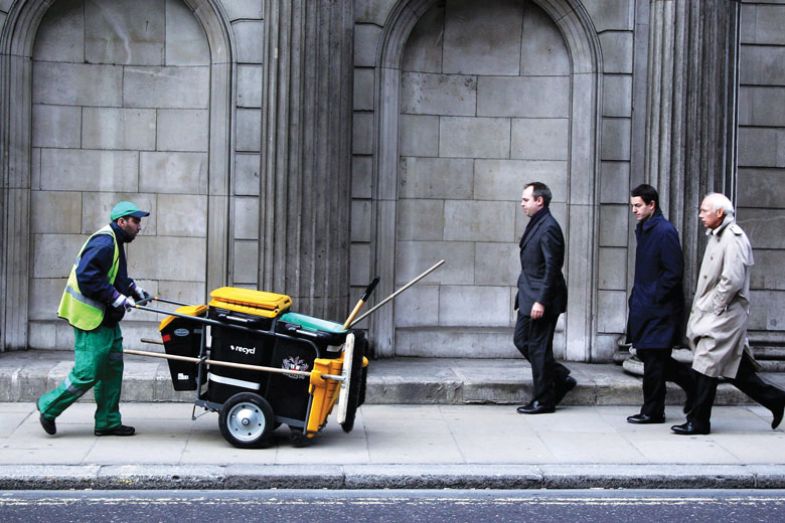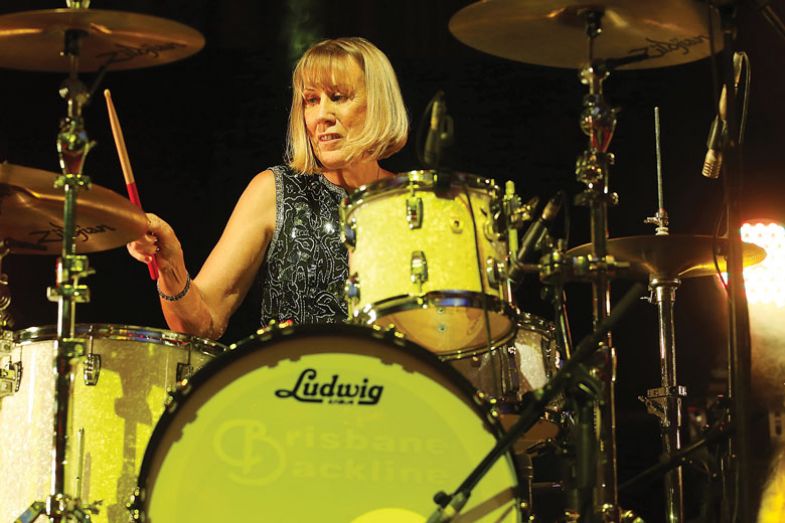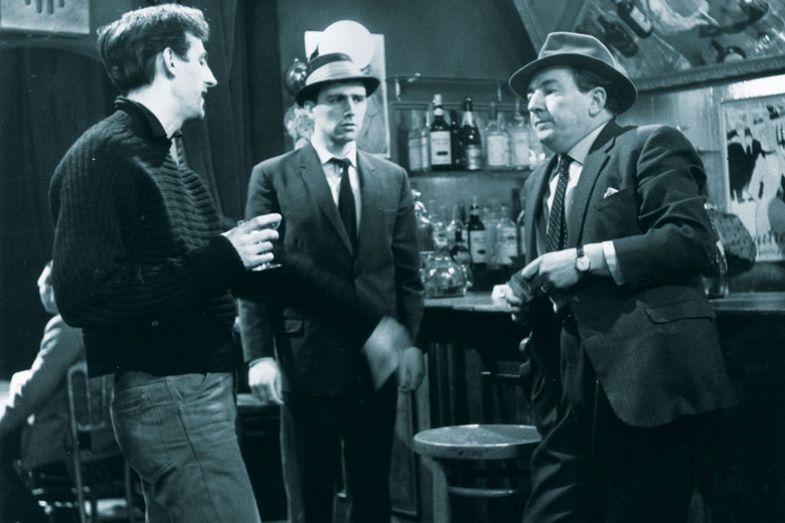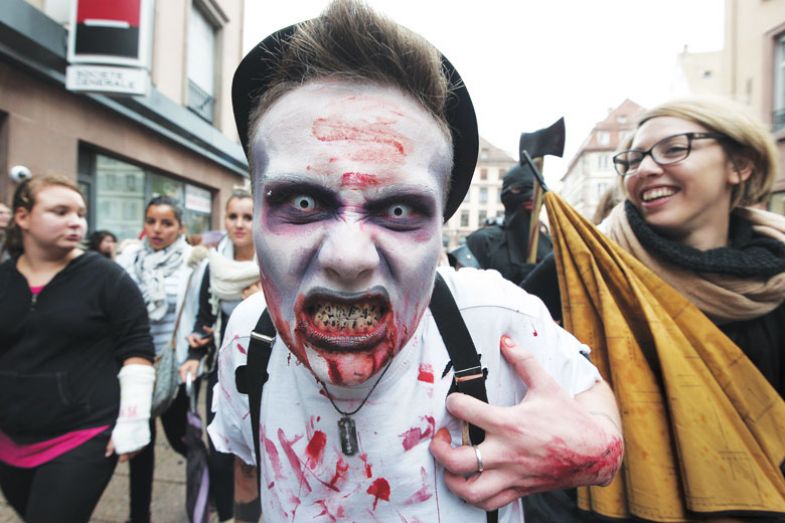Lucy Bolton, reader in film, Queen Mary University of London
My two books are both about the lives of women, fictional and non-fictional, in unusually intricate ways. As a person with chronic illness, I am keen to read Elinor Cleghorn’s investigation of the treatment of women’s bodies – and minds – in Unwell Women: A Journey through Medicine and Myth in a Man-Made World (Weidenfeld and Nicolson). I am constantly amazed by medicine’s failure to accept women as the narrators of the experience of their own bodies, and my membership of patient support groups confirms that these attitudes are still widely prevalent today. From “wandering wombs” in Ancient Greece to contemporary ignorance about autoimmune disease and the systemic racism that Black women experience in childbirth, the specificity of women’s health issues demands attention.
I have been thoroughly enjoying the burgeoning genre of novels featuring film stars as characters. These fictional encounters with real actors are a peculiar challenge to what we think we know about certain stars, and it is enjoyably disorientating to read about “them” in novels alongside other characters. My PhD student has recommended Taylor Jenkins Reid’s The Seven Husbands of Evelyn Hugo (Washington Square Press), about the riotous life of a fictional Hollywood movie star. I have no doubt that it is largely based on scurrilous stories about the stars that I know and love who made it big in the 1950s. I’m hoping for salacious gossip and hyperbolic glamour, as well as a vicarious journey through the Hollywood studio system.
Angie Hobbs, professor of the public understanding of philosophy, University of Sheffield
I am greatly looking forward to reading Malcolm Schofield’s new study, Cicero: Political Philosophy (Oxford University Press), situated within Cicero’s own turbulent life and times, and looking at his letters and speeches as well as works such as On the commonwealth, On laws and On duties. In this age of borders and walls, Cicero’s keen interest in cosmopolitanism (inspired by both the Cynics and the Stoics) has great appeal. And at a time when some political leaders seem indifferent to questions of morality and taking responsibility for their actions, his commitment to the rule of law, government accountability and the importance of moral character and ethical decision-making, among both leaders and the citizen body in general, are also highly attractive. Schofield’s analysis of the strengths and weaknesses of Cicero’s allegiance to republican values amid the disintegration of the old Roman order will, I think, have much to teach us.
As the pandemic drags on, I shall definitely be returning to P. G. Wodehouse’s Summer Lightning – stolen memoirs, the theft of a mighty pig, a fake heiress, tangled love affairs, the efficient Baxter and a terrific ensemble cast. “She looked,” we read, “like something that might have occurred to Ibsen in one of his less frivolous moments.” Perfect.
Rivka Isaacson, reader in chemical biology, King’s College London
In between marking exams, I have spent most of the past two months coordinating the outline stage of a massive cross-disciplinary grant application between biophysicists, microbiologists, physicists, mathematicians and cell biologists. If we get through to the full application stage, then that’ll be my summer fully booked. As a sort of joke, but also because we need it, I’ve bought myself and the main microbiologist a copy of Soft Matter: A Very Short Introduction (Oxford University Press) by the ever eloquent Tom McLeish. It will definitely feature in my summer reading, maybe as a mini book club with my collaborator, to get us fluent in the physics lingo for describing our research and endear us to the Engineering and Physical Sciences Research Council.
Thanks to the pandemic, I’ve lost my commute, which was my main reading time, and have turned to poetry, allowing myself one or two poems as a reward for completing tasks. I’ve recently ordered Fothermather (Ink Sweat & Tears), a wonderful-sounding collection about complex family structures, by a superb poet called Gail McConnell, who is also an academic at Queen’s University Belfast. I’ve been obsessed with a recent BBC Radio 4 series On Form, which explores a popular return to fixed-form poetry. McConnell contributed inspiringly to the “Villanelle” episode, reading an example from Fothermather, which was unspeakably moving, and I can’t wait for the book to arrive.
Pardis Mahdavi, dean of social sciences, Arizona State University
If the past 18 months have taught us anything, it’s that there is an absolute link between health justice, social justice and economic justice. We have found ourselves in the midst of a triple pandemic: a viral pandemic of Covid, a social pandemic of racism and an economic epidemic of inequality and joblessness. For this reason, I am excited to be reading Heather McGhee’s The Sum of Us: What Racism Costs Everyone and How We Can Prosper Together (Profile). Part-memoir, part-journalism, and infused with rigorous, on-the-ground research, McGhee’s book is the story of how operating in a scarcity model or zero-sum game has led us to this moment. Her writing is gorgeous, and the story could not be more important for all of us right now.

For fun (not that all books aren’t fun!), I am excited to read Yaa Gyasi’s new book, Transcendent Kingdom (Viking). Her first book, Homegoing, was one of the best books I have read in a long time. It is an elegantly stitched together narrative about the intergenerational impacts of migration and slavery. Gyasi tells these painful stories so elegantly that I felt I knew each of the individuals she describes like my own family. Her new book is also an account of a family, this time a Ghanaian family living in the US, with a focus on the intersections of faith, science, love and family.
Michael Marinetto, senior lecturer in management, Cardiff Business School
About a year ago I got a copy of Viktor Frankl’s Man’s Search for Meaning (Rider) in the hope of making sense of the bleak early months of the lockdown and the pandemic. Frankl was an Austrian psychiatrist and Holocaust survivor, and his book is the inside story of “not the large and famous camps but…the small ones where most of the real extermination took place”. Although the pandemic experience obviously cannot be equated with what victims of Nazi brutality went through, Frankl’s case for real hope over “tragic optimism” is relevant and much needed today. A year into an ongoing pandemic and various lockdowns, I finally feel ready to read about his experiences and appreciate his wisdom.
During the second or third lockdown I came across Steve Tesich’s Karoo. Tesich was an Oscar-winning screenwriter and Karoo was published posthumously in 1998 (and is sadly now out of print). It tells the story of Saul “Doc” Karoo, an alcoholic who can’t get drunk, a loving father who can’t stand being with his son. Karoo works as a Hollywood fixer of scripts, at the expense of his own dignity and originality. I’ve saved this to read for the summer, an escape from the world but perhaps not the day job. For real escapism, I’ve embarked on the entire Chronicles of Narnia. I have already read The Magician’s Nephew, which comes chronologically first in the series. The next one is about some wardrobe and a witch…
Emily Michelson, senior lecturer in history, University of St Andrews
It’s often happened that I pick out a book, or a book series, and promise it to myself as a reward: something I’ll save for a holiday, or to celebrate the completion of a giant project. Then, when the time comes, I don’t read it. My delay-gratification tactics just fizzle out. I’m too tired or, more often, don’t feel as accomplished and celebratory as I thought I would. Then, last winter, my family suffered a medical emergency, and I embraced a new reading mantra: life is short – comfort now. In the early weeks after the danger passed, I escaped into a quartet of giant escapist novels and finished the lot in about two weeks. I’d advise you all to do the same.
This summer, I won’t get much holiday, except within books and screens. My great brainy escape is Eleanor Catton’s The Luminaries (Granta), which won the Man Booker Prize in 2013. It’s a gorgeous book with finely wrought sentences, dense plotting and brilliant imagery, set in the New Zealand gold rush of the late 19th century. It draws you in and makes you read slowly; at 800 pages, it can be my summer-long read, although I’ve been deep in it since April.
As I’m an early modern Italianist, I’m also excited to catch up with Erica Benner’s chatty biography, Be Like the Fox: Machiavelli’s Lifelong Quest for Freedom (Penguin). As for breath-catching roller-coaster page-turners, I’ll be reading Katherine Rundell or Rick Riordan with my youngest.
Joe Moran, professor of English and cultural history, Liverpool John Moores University
I have saved up Hisham Matar’s A Month in Siena (Penguin). A colleague in a non-fiction writing group I am in recommended it, and I loved Matar’s previous book, The Return: Fathers, Sons and the Land In Between. That is about his return to Libya after the fall of Gaddafi and is a beautiful meditation on homecoming and grief for his father, who was kidnapped and taken prisoner by the Gaddafi regime when Matar was 19. A Month in Siena is a kind of sequel. Matar spends a month on his own in the Italian city, looking at the paintings of the Sienese School. I like the idea of really getting to know a painting over hours and hours, as Matar does, and what this can tell us about art, life and death. Most gallery-goers glance at an exhibit for a few seconds, squint at the wall caption and walk away. We need more slow looking and slow reading – to see the world, as Rilke once wrote that he had learned to do with Cézanne, “more seeingly”.

I also look forward to reading Tracey Thorn’s My Rock ’n’ Roll Friend (Canongate). The book is about Thorn’s long friendship with the Go-Betweens’ drummer, Lindy Morrison (above), and being a woman band member in a male-dominated and misogynistic industry. I have read all Thorn’s previous books, which skilfully interweave memoir and social and cultural history. As well as being a great songwriter, Thorn is a great prose writer. Her sentences have a lovely, easy, unhurried rhythm to them – perfect summer reading.
Shane O'Mara, professor of experimental brain research, Trinity College Dublin
My “serious” choice is Masha Gessen’s Surviving Autocracy (Granta). Authoritarian voices and impulses have not been stilled by recent elections or the ongoing pandemic, although they have been quieted, if just a little, by a virus that doesn’t care about sloganising as a substitute for policy. The lure of the “shouty man” (for it is almost always a man) with loud and simple solutions to complex problems never seems to go away. Orwell’s Nineteen Eighty-Four is always prescient, and especially so in these troubled times. We must hope Gessen's book becomes a warning, and that we will look back at a future we have avoided.

As a bit of relief, I have started reading George Simenon’s 75 (yes, 75!) Maigret novels in order of publication (Penguin). They offer brilliant slices of life – mostly of France and especially Paris – over 40 years, from Pietr the Latvian (1931) all the way to Maigret and Monsieur Charles (1971). Looking back from 2021, these books are not dated period pieces but an astonishing literary achievement. Even in tone, psychologically complex, sparely written, they bring an atmosphere of dread and despair or, sometimes, relief, and often leave the reader filled with ambiguity about the outcome. Throughout the series, Maigret simply “observes”, thinks, tests and probes, with a pragmatic humanism on full display.
Emma Rees, professor of literature and gender studies, and director of the Institute of Gender Studies, University of Chester
Moving to the Welsh countryside from one of the busiest roads in Chester has been a revelation. There are trees and birds and wild flowers here, and so I’ve started learning how to identify them. For escapism, then, I’m returning to a book my mother recently sent to me. “Emma Rees Form III” is proudly written in painstaking joined-up fountain pen on the very first page of a dog-eared edition of The Wild Flowers of Britain and Northern Europe (Collins). The book was a labour of love by father and son team Richard and Alistair Fitter, with magnificent colour illustrations by Marjorie Blamey. I’m looking forward to a summer of telling my Scorpion Senna apart from my Petty Whin, and my Hoary Cinquefoils from my Silverweeds.

Far from the sublimity of the natural world is the absurdity of the current climate in higher education. John Smyth’s Toxic University: Zombie Leadership, Academic Rock Stars, and Neoliberal Ideology (Palgrave) has been on my “To Read” pile for far too long. When it was Times Higher Education’s Book of the Week in August 2017, the author’s description of how the “separation of decision-making and management from any profound understanding embedded in and emerging from academic work destroyed the collegial basis of universities” made me buy the book. Now I have time and space (and, dare I say, motivation) to read it. It looks like the perfect guide to what so many of us are experiencing – especially in the humanities – right now.
Deborah D. Rogers, professor of English, University of Maine
My guilty pleasure is Nordic noir. It all started with Stieg Larsson’s Girl with the Dragon Tattoo, followed by humorist Amy Schumer’s Girl with the Lower Back Tattoo. To get me back into Scandi noir, my brother handed me a copy of The Snowman (Vintage), Norwegian writer Jo Nesbø’s dark, chilling page-turner featuring his maverick alcoholic detective, Harry Hole. This summer I intend to be a Nesbø completist. I look forward to reading The Kingdom, his violent stand-alone thriller, and Knife, the latest book in his Harry Hole series.

Following our 2020 season of loss, I’m also reading about death. Being Mortal: Medicine and What Matters Most in the End (Profile) is an indictment of the American medical establishment by Atul Gawande. A surgeon and a staff writer at The New Yorker, he criticises our healthcare system for end-of-life care that focuses on safety and survival, at the cost of independence and dignity. He finds that his medical school training never prepared him to confront patients’ deaths: “I never expected that among the most meaningful experiences I’d have as a doctor – and, really, as a human being – would come from helping others deal with what medicine cannot do as well as what it can.” Bookended by his grandfather’s death in India and his father’s death in America, Gawande’s book compassionately argues that quality of life should trump longevity. In its own way, his analysis of nursing homes, where many Americans will spend more than a year declining and dying, is as frightening as Nesbø’s nightmares.
Angelia Wilson, professor of politics, University of Manchester
Being stuck at home during Covid, you’d think I’d have caught up on reading. Apparently not. But put me in a cottage in Wales with no Zoom and only the prospect of long walks, and now I’m on it. First up, Kate Raworth’s Donut Economics: Seven Ways to Think Like a 21st-Century Economist (Cornerstone). Reading economic theory may not sound like a holiday, but trust me – it’s good. The writing is intelligently entertaining, weaving chunks of social science theory into an accessible, compelling critique of consumer capitalism without being dourly Marxist or evoking immobilising guilt. Raworth’s model – a socio-economic future that avoids ecological disaster while tackling world poverty – informed UN negotiations of the Sustainable Development Goals. It offers a solid account of where we are, a vision of the future (not requiring an authoritarian eco-government imposing vast material deprivation) and a damn good plan to get us there. Fabulous.
I now turn to my fiction treat: Elise Hooper’s Fast Girls: A Novel of the 1936 Women’s Olympic Team (William Morrow). It offers an account of three athletes: Helen Stephens, 100m and 4 x 100m relay gold medal winner; Betty Robinson, 100m world record holder who, after recovering from a debilitating 1931 plane crash, returned to join Stephens in the 1936 relay team; and Louise Stokes, one of the first African American women to compete in the Olympics. It was published last year but, with the Japan Games delayed, it seems like the perfect inspirational summer read. And, who knows, it might even move me to tackle one of those long Welsh walks.
